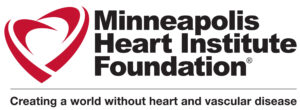Educating the public about the importance of clinical research in Minnesota.
What are
clinical trials?
Clinical trials are research studies that generate data to support FDA approval of a new medicine or a new indication for an existing medication. They also grant participants early access to new medicines, which are being developed to help combat chronic and serious diseases. Without clinical trials, new medicines could not be approved and—most importantly—made available to patients who need them.
In Minnesota, thousands of clinical trials have targeted diseases and conditions like asthma, arthritis, cancer, diabetes, cardiovascular disease and Alzheimer’s disease. By volunteering for a clinical trial, patients take an active role in their health care by helping researchers test new treatments.
What we do
We are dedicated to educating the public, elected officials and the media about the importance of clinical research to patients, the health care system and the state’s economy. Our mission is for Minnesota to be recognized nationally and internationally as a leader in patient care, innovation and collaboration for the benefit of our patients.
We work together to:
- Provide clinical research education and support for elected officials, the media, manufacturers, vendors, service providers and academic partners.
- Defining clinical research in easily understandable terms that educate all to the instrumental role our industry plays in healthcare and the economy.
- Ensure patient safety and clinical research integrity continue to be the foundation of our efforts.








